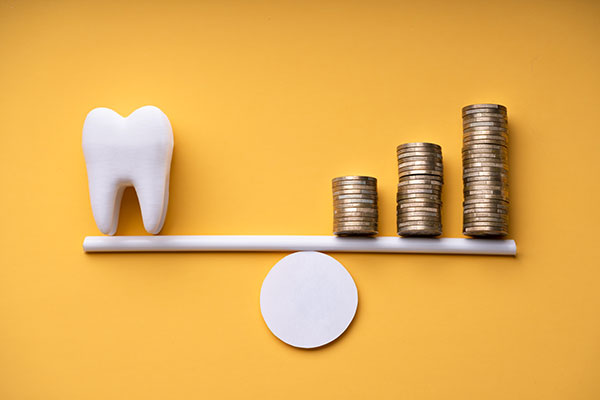Oral Sedation Dentistry Services
Feel Relaxed at the Dentist
Do you dread going to the dentist due to anxiety or fear? You’re not alone. Millions of people experience dental anxiety, leading them to avoid necessary dental procedures, which can negatively impact oral health. Thankfully, oral sedation dentistry can help patients relax during their dental appointments, making dental care less stressful.
At our Jupiter, FL, dental office, Dr. Al Villalobos explains how oral sedation can help you overcome dental anxiety to ensure a calm, comfortable experience. If you have questions or would like to schedule an appointment, call us today at (561) 744-0677.

What Is Oral Conscious Sedation?
Oral conscious sedation involves administering medication to help patients feel relaxed and comfortable during dental appointments. It allows patients to be awake and able to respond to instructions.
From a simple dental cleaning to more invasive treatments, minimal sedation can make a world of difference for patients who would otherwise avoid the dental chair.
How Oral Conscious Sedation Works
Oral conscious sedation involves using sedative medications like benzodiazepines to reduce anxiety and induce relaxation. These drugs target receptors in the central nervous system, helping to calm the body and mind without rendering the patient completely unconscious. This allows for a comfortable dental procedure while keeping you responsive to your dentist’s instructions.
Benefits of Oral Sedation Dentistry
- Minimizes Dental Anxiety: Oral sedation helps patients with a high level of dental fear feel more at ease.
- Fewer Appointments: Since sedation allows for multiple treatments in a single visit, it can reduce the number of appointments.
- Comfort During Procedures: It can make even lengthy procedures more tolerable by reducing discomfort and stress.
- Improved Oral Health: Patients who usually avoid going to the dentist due to anxiety can finally get the treatment they need.
Types of Oral Sedatives
Different types of sedative medications can be used to ensure a relaxed experience during your dental appointment:
- Benzodiazepines: These are commonly used for oral sedation due to their anxiolytic and sedative properties. Compared to other sedatives, benzodiazepines possess a considerable safety margin (high therapeutic index). This means they have a lower risk of causing dangerous side effects, making them a popular choice for sedation dentistry.
- Non-Benzodiazepines: These provide similar effects to benzodiazepines but may have fewer side effects and a lower risk of dependency. They can still effectively reduce anxiety and promote relaxation during dental procedures, making them a viable alternative for some patients.
- Antihistamines: These are primarily used to treat allergies and other ailments, but they can also be used as sedatives to help reduce anxiety and induce relaxation. Although their sedative effects may not be as potent as benzodiazepines or non-benzodiazepines, antihistamines can still provide a valuable option for patients in need of mild sedation during dental procedures.
Before your dental treatment, our dentist will disclose what type of oral sedative they offer.
The Oral Conscious Sedation Process
Pre-Procedure Consultation
Before your procedure, our Jupiter dentist will evaluate your oral health, dental history, medical history, and anxiety levels to determine the best type of sedation for you. This ensures your safety and comfort during the procedure.
During the Procedure
During your dental treatment, we monitor your vital signs (like blood pressure and oxygen levels) to ensure your safety. Our team will create a tranquil environment to help you feel relaxed and use local anesthesia to minimize pain if needed. The goal is to make your dental experience as pleasant and stress-free as possible.
Post-Procedure Care
After the procedure, patients often feel drowsy or experience mild side effects due to the sedative. It’s important to have a responsible adult accompany you home. The effects typically wear off within a few hours, though some patients may feel groggy longer. However, if you experience any lingering effects or have concerns about your post-procedure condition, contact our dentist as soon as possible.
Oral Sedation vs. Other Sedation Methods
- Nitrous Oxide: Also known as “laughing gas,” this provides minimal sedation and wears off quickly.
- IV Sedation: Offers deeper sedation but requires an IV and is usually reserved for more invasive procedures.
- General Anesthesia: Used for major dental surgeries when a patient needs to be completely unconscious.
- Minimal and Moderate Sedation: Oral sedation typically falls under these categories, depending on the dosage.
Potential Risks and Side Effects
While oral conscious sedation is generally safe, there are still potential risks and side effects to be aware of. By adhering to our dentist’s instructions and guidelines, you can ensure a safe and effective sedation dentistry experience. The risks and side effects associated with oral conscious sedation are generally mild and short-lived.
Patients may experience:
- Drowsiness
- Dizziness
- Nausea
- Allergic reactions to the sedative medication
However, these side effects typically resolve within a few hours after the procedure.
Is Oral Sedation Right for You?
Oral sedation is ideal for patients who:
- Have severe dental anxiety
- Require multiple treatments in one visit
- Have a low pain threshold or a sensitive gag reflex
- Have had traumatic dental experiences in the past
Our team in Jupiter is here to discuss your options and ensure a comfortable experience.
Special Considerations
Some patients may require special considerations when undergoing dental sedation. Patients with the following medical conditions should be given special attention when administering oral sedation:
- Cardiovascular disease
- Respiratory issues
- Sleep apnea
- Geriatric patients
- Those with special needs

Insurance and Costs
Insurance coverage for sedation dentistry varies, with some plans offering coverage if it’s deemed medically necessary. Contacting your insurance provider to understand your coverage for oral sedation and discussing payment options with our dentist is vital.
By understanding your insurance coverage and payment options, you can make informed decisions about your dental care and ensure you receive the appropriate sedation services.
Frequently Asked Questions
Oral conscious sedation doesn’t cause pain. Patients remain calm and relaxed during the procedure and may not even be aware of what is happening. Minor discomfort may still be felt, but this can easily be forgotten due to the sedative effect.
The effects of oral sedation typically last two to eight hours, depending on the medication used. You’ll likely feel groggy afterward, so avoid driving or making important decisions until the sedative has worn off.
Schedule Your Dental Appointment Today!
If you’ve been avoiding the dentist due to anxiety, oral sedation dentistry could be the solution you need. Don’t let fear compromise your smile—contact our dentist in Jupiter to schedule an appointment today. We proudly serve Jupiter and surrounding areas, including Hobe Sound, Limestone Creek, and Tequesta, FL.
